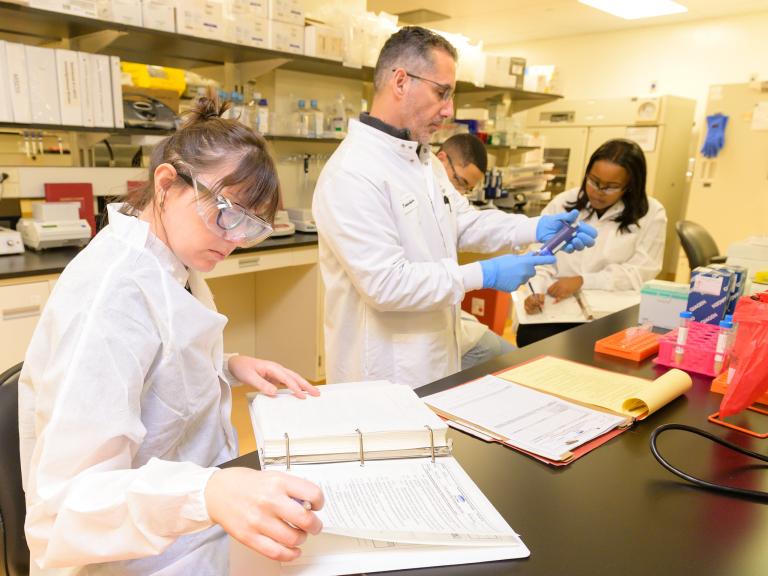The NIAID Centralized Sequencing Program works with researchers at NIAID and partners across the NIH, as well as the Children’s National Health System to provide clinical research genomic services at the NIH Clinical Center. The goal of the program is to raise the standard of clinical practice and to facilitate research by integrating genomics into patient care.
Since launching in 2017, the Centralized Sequencing Program has partnered with dozens of NIH investigators to provide genomic information to nearly 10,000 participants. This includes participants suspected to have a Mendelian disease—such as primary immunodeficiencies, cystic fibrosis, Marfan syndrome and more—and participants with more complex disease etiologies.
The program currently provides genomic testing and genetic counseling services for over 1,500 participants each year. Hundreds of patients have received genetic diagnoses because of these services, including many potentially life-saving findings.
Core Pillars of Our Program

Genetic Diagnosis
Identifying a genetic diagnosis, which can lead to changes in patient care and improved outcomes.

Research and Discovery
Impactful research findings spurred by collaboration and data sharing.

Training
Hundreds of hours educating investigators and trainees.



